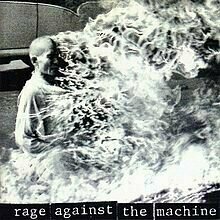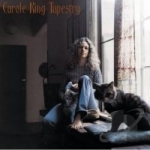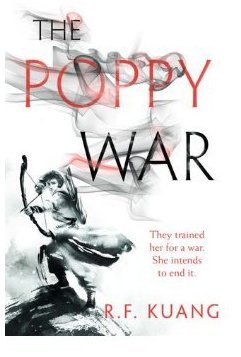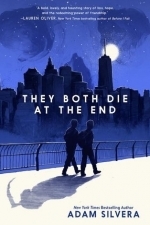Search
Search results
Rob Halford recommended Rage Against the Machine by Rage Against The Machine in Music (curated)
Kathleen Hanna recommended Tapestry by Carole King in Music (curated)
ClareR (6062 KP) rated Gun Island in Books
May 21, 2021
Gun Island is a beautifully written story about a rare book dealer Deen Datta, and how his trip to a small island in the Sunderbans sets in motion a series of events that affect him deeply, opening his eyes to the world around him - a world far beyond his own experience. His journey takes in history, folklore, magic, climate change and ecological disasters. We see how climate change has an effect not just on animals, but also on people - causing the refugee crisis and the consequent reaction of Europe - especially those countries who feel they’re most at risk of being overwhelmed by the flood of refugees.
Deen Datta certainly gets around on his journey. From New York where he lives, to the Sunderbans in India, then onto a California on fire and a more flooded than usual Venice. This could have been a book that preached about the perils of climate change, but it didn’t. It did lay the stark reality out for the reader, but this was just as much a part of the story as the relationships Deen has with the people he meets, and his friends. There is a real feeling that Deen doesn’t have a firm identity: he’s detached from his Bengali roots, and he doesn’t fit in to New York either. But I think he does feel a sense of belonging by the end of the book, with the help of his friends. Cinta, a Venetian, is an old friend, and someone who always seems to push him into doing what’s good for him. Then there are his Indian friends, Piya and Tipu who help him to learn new things about himself and the world he lives in.
I loved this book. It ticked a lot of boxes on my favourite themes list: the environment, India, history, folklore, the search for identity. It’s such a thought provoking, magical novel.
Deen Datta certainly gets around on his journey. From New York where he lives, to the Sunderbans in India, then onto a California on fire and a more flooded than usual Venice. This could have been a book that preached about the perils of climate change, but it didn’t. It did lay the stark reality out for the reader, but this was just as much a part of the story as the relationships Deen has with the people he meets, and his friends. There is a real feeling that Deen doesn’t have a firm identity: he’s detached from his Bengali roots, and he doesn’t fit in to New York either. But I think he does feel a sense of belonging by the end of the book, with the help of his friends. Cinta, a Venetian, is an old friend, and someone who always seems to push him into doing what’s good for him. Then there are his Indian friends, Piya and Tipu who help him to learn new things about himself and the world he lives in.
I loved this book. It ticked a lot of boxes on my favourite themes list: the environment, India, history, folklore, the search for identity. It’s such a thought provoking, magical novel.
LoganCrews (2861 KP) rated The Dreamers (2003) in Movies
Dec 3, 2020 (Updated Dec 3, 2020)
Actual lines of dialogue from this movie:
"𝘐 𝘥𝘰𝘯'𝘵 𝘣𝘦𝘭𝘪𝘦𝘷𝘦 𝘪𝘯 𝘎𝘰𝘥. 𝘉𝘶𝘵 𝘪𝘧 𝘐 𝘥𝘪𝘥, 𝘩𝘦 𝘸𝘰𝘶𝘭𝘥 𝘣𝘦 𝘢 𝘣𝘭𝘢𝘤𝘬, 𝘭𝘦𝘧𝘵-𝘩𝘢𝘯𝘥𝘦𝘥 𝘨𝘶𝘪𝘵𝘢𝘳𝘪𝘴𝘵."
"𝘐'𝘮 𝘵𝘰𝘰 𝘸𝘦𝘵 𝘵𝘰 𝘢𝘯𝘴𝘸𝘦𝘳 [𝘵𝘩𝘦 𝘱𝘩𝘰𝘯𝘦]."
"𝘠𝘰𝘶'𝘳𝘦 𝘢 𝘣𝘪𝘨 𝘮𝘰𝘷𝘪𝘦 𝘣𝘶𝘧𝘧, 𝘳𝘪𝘨𝘩𝘵? 𝘛𝘩𝘦𝘯 𝘸𝘩𝘺 𝘥𝘰𝘯'𝘵 𝘺𝘰𝘶 𝘵𝘩𝘪𝘯𝘬 𝘰𝘧 𝘔𝘢𝘰 𝘢𝘴 𝘢 𝘨𝘳𝘦𝘢𝘵 𝘥𝘪𝘳𝘦𝘤𝘵𝘰𝘳... 𝘮𝘢𝘬𝘪𝘯𝘨 𝘢 𝘮𝘰𝘷𝘪𝘦 𝘸𝘪𝘵𝘩 𝘢 𝘤𝘢𝘴𝘵 𝘰𝘧 𝘮𝘪𝘭𝘭𝘪𝘰𝘯𝘴."
The far less entertaining 𝘊𝘳𝘶𝘦𝘭 𝘐𝘯𝘵𝘦𝘯𝘵𝘪𝘰𝘯𝘴 meets... idek, the really long talky parts from 𝘛𝘦𝘵𝘳𝘰? A woeful experience - uses a ton of intellectual jargon but says next to nothing. On the one hand, perfectly emulates this sort of 20-something who thinks they're the most original being on the planet despite being another clichéd story no one wants to be around... but on the other, at what cost? These people seem beyond insufferable to be around - three pretentious, odious fucks sit around drinking wine and smoking while spewing superficial first-year-film-major histrionics, jerking off, and smelling each others' underwear. Every bit as lumbering, surface-level, and pompous as that sounds. Usually I'm all for these conceited combinations of toxic people, self-destruction, and explicit sex but this is virtual parody levels of this sort of "wants to be a 70s movie really bad" cinema. Has a few good scenes that actually find a palpable mood but otherwise exists almost solely to brag about how many old movies it's seen, uses both those aforementioned films and the real life 1968 Paris riots as not much more than mere window dressing while failing to confront whatever shred of an idea it briefly poses for a scene or two. Eva Green and the dad are the only two tolerable performances. All but begs you to find it audacious and daring with a shit-eating sneer while simultaneously gutting the homosexuality from the original text so this won't steer *too* far off the hetero curve. And then it ends with a total "who cares?". Pretty but dumb. The sex stuff is kind of decent, though.
"𝘐 𝘥𝘰𝘯'𝘵 𝘣𝘦𝘭𝘪𝘦𝘷𝘦 𝘪𝘯 𝘎𝘰𝘥. 𝘉𝘶𝘵 𝘪𝘧 𝘐 𝘥𝘪𝘥, 𝘩𝘦 𝘸𝘰𝘶𝘭𝘥 𝘣𝘦 𝘢 𝘣𝘭𝘢𝘤𝘬, 𝘭𝘦𝘧𝘵-𝘩𝘢𝘯𝘥𝘦𝘥 𝘨𝘶𝘪𝘵𝘢𝘳𝘪𝘴𝘵."
"𝘐'𝘮 𝘵𝘰𝘰 𝘸𝘦𝘵 𝘵𝘰 𝘢𝘯𝘴𝘸𝘦𝘳 [𝘵𝘩𝘦 𝘱𝘩𝘰𝘯𝘦]."
"𝘠𝘰𝘶'𝘳𝘦 𝘢 𝘣𝘪𝘨 𝘮𝘰𝘷𝘪𝘦 𝘣𝘶𝘧𝘧, 𝘳𝘪𝘨𝘩𝘵? 𝘛𝘩𝘦𝘯 𝘸𝘩𝘺 𝘥𝘰𝘯'𝘵 𝘺𝘰𝘶 𝘵𝘩𝘪𝘯𝘬 𝘰𝘧 𝘔𝘢𝘰 𝘢𝘴 𝘢 𝘨𝘳𝘦𝘢𝘵 𝘥𝘪𝘳𝘦𝘤𝘵𝘰𝘳... 𝘮𝘢𝘬𝘪𝘯𝘨 𝘢 𝘮𝘰𝘷𝘪𝘦 𝘸𝘪𝘵𝘩 𝘢 𝘤𝘢𝘴𝘵 𝘰𝘧 𝘮𝘪𝘭𝘭𝘪𝘰𝘯𝘴."
The far less entertaining 𝘊𝘳𝘶𝘦𝘭 𝘐𝘯𝘵𝘦𝘯𝘵𝘪𝘰𝘯𝘴 meets... idek, the really long talky parts from 𝘛𝘦𝘵𝘳𝘰? A woeful experience - uses a ton of intellectual jargon but says next to nothing. On the one hand, perfectly emulates this sort of 20-something who thinks they're the most original being on the planet despite being another clichéd story no one wants to be around... but on the other, at what cost? These people seem beyond insufferable to be around - three pretentious, odious fucks sit around drinking wine and smoking while spewing superficial first-year-film-major histrionics, jerking off, and smelling each others' underwear. Every bit as lumbering, surface-level, and pompous as that sounds. Usually I'm all for these conceited combinations of toxic people, self-destruction, and explicit sex but this is virtual parody levels of this sort of "wants to be a 70s movie really bad" cinema. Has a few good scenes that actually find a palpable mood but otherwise exists almost solely to brag about how many old movies it's seen, uses both those aforementioned films and the real life 1968 Paris riots as not much more than mere window dressing while failing to confront whatever shred of an idea it briefly poses for a scene or two. Eva Green and the dad are the only two tolerable performances. All but begs you to find it audacious and daring with a shit-eating sneer while simultaneously gutting the homosexuality from the original text so this won't steer *too* far off the hetero curve. And then it ends with a total "who cares?". Pretty but dumb. The sex stuff is kind of decent, though.
ClareR (6062 KP) rated Summerwater in Books
Oct 4, 2020
Summerwater takes place over a single day in a Scottish holiday park. Each section follows a different person as they experience a very wet holiday with not very much to do.
I do enjoy this kind of book that looks at the ordinary, everyday lives - nothing wildly exciting happening. I know this may appear odd, but there you are 🤷🏼♀️ Maybe it could be construed as voyeuristic, but ‘normal’ fascinates me, because one persons normal isn’t remotely like mine (or anyone else’s). There are people from all walks of life: the retired doctor and his wife who appears to have dementia; young parents with small children; older parents with teenaged children; a boyfriend and his girlfriend. I could go on, but I won’t. Needless to say, they’re all very different people. They do have some things in common: their distrust of outsiders. There is an ex-soldier camping and living rough in the woods, and a Ukrainian family who certainly seem to know how to have a party. No-one seems to particularly trust them or like their presence at the holiday park.
I liked the smaller sections from the point of view of nature - whether it was from one of the animals in the woods, or the bedrock beneath the lodges. It made me think that all of the petty human concerns were nothing in comparison to the ground beneath their feet and that feeling of endurance.
I’ve had more than a few holidays where I’ve been shut up in a tent, camper van or a holiday cottage because of bad weather, and this reminded me in some part of those holidays (minus the rather dramatic ending!). I think I liked this so much because basically, at the end of the day, I’m a bit of a curtain twitcher...
Many thanks to NetGalley and Picador/ Pan Macmillan for my copy of this book.
I do enjoy this kind of book that looks at the ordinary, everyday lives - nothing wildly exciting happening. I know this may appear odd, but there you are 🤷🏼♀️ Maybe it could be construed as voyeuristic, but ‘normal’ fascinates me, because one persons normal isn’t remotely like mine (or anyone else’s). There are people from all walks of life: the retired doctor and his wife who appears to have dementia; young parents with small children; older parents with teenaged children; a boyfriend and his girlfriend. I could go on, but I won’t. Needless to say, they’re all very different people. They do have some things in common: their distrust of outsiders. There is an ex-soldier camping and living rough in the woods, and a Ukrainian family who certainly seem to know how to have a party. No-one seems to particularly trust them or like their presence at the holiday park.
I liked the smaller sections from the point of view of nature - whether it was from one of the animals in the woods, or the bedrock beneath the lodges. It made me think that all of the petty human concerns were nothing in comparison to the ground beneath their feet and that feeling of endurance.
I’ve had more than a few holidays where I’ve been shut up in a tent, camper van or a holiday cottage because of bad weather, and this reminded me in some part of those holidays (minus the rather dramatic ending!). I think I liked this so much because basically, at the end of the day, I’m a bit of a curtain twitcher...
Many thanks to NetGalley and Picador/ Pan Macmillan for my copy of this book.

Soccer Predictions PE
Sports
App
This application shows all today's matches. By using intelligent algorithms, it makes predictions...

Basketball Predictions PE
Sports
App
This application shows all today's matches. By using intelligent algorithms, it makes predictions...
Amanda (96 KP) rated They Both Die At The End in Books
May 29, 2019
I’ve seen this book on my Twitter and Instagram and I finally gave in…I’m so glad and sad that I did. My heart! I swear! The sad thing is that the title really says it all, so you’re not blind sided, but there’s always that hope, right?
In this universe, there is a company called Death Cast – from 12 am to 3 am, they make these calls to people and inform that within 24 hours, they would die. Yeah. Someone from a cubicle call center calls you up and says you will die within the next 24 hours, they don’t know how but you will, and try to provide you with support.
Yeah, okay, you get a phone call that you’re about to die but then try to get some sort of sympathy or support – yeah, I definitely can’t do that job. And no, the people who work for Death Cast are NOT exempt from getting those calls.
For the most part, the story is told from two points of views, Mateo and Rufus. They both get the call in the same time frame. Other chapters are told from different people’s points of view that have some sort of ‘connection’ with the boys, even if it’s just in passing. Such as an old girlfriend of Rufus, or the Death Cast employee who gave him the alert that he would die.
I grew so attached to these boys! They were both dealt with some crappy hands. Mateo’s mother passes away and his father is in a coma. Rufus lives in an orphanage called ‘Pluto’ and has no blood family. I mean, damn! My poor boys!
“You may be born into a family, but you walk into friendships. Some you’ll discover you should put behind you. Others are worth every risk.”
Yes, I got emotional with this story, but this was so beautifully written. I adored Silvera’s way of writing this story. Granted, sometimes I don’t care for hearing about other people that are not Mateo and Rufus, but it was crucial to know what kind of world this was that Death Cast exists and nobody is exempt from it.
Don’t think of this as Final Destination. Nobody is trying to escape death (well, one was for a little bit), it’s a world where you can imagine what it would be like if you knew you were going to die soon, what would you do? How would you react? Is better knowing or not knowing?
“Maybe it’s better to have gotten it right and been happy for one day instead of living a lifetime of wrongs.”
In this universe, there is a company called Death Cast – from 12 am to 3 am, they make these calls to people and inform that within 24 hours, they would die. Yeah. Someone from a cubicle call center calls you up and says you will die within the next 24 hours, they don’t know how but you will, and try to provide you with support.
Yeah, okay, you get a phone call that you’re about to die but then try to get some sort of sympathy or support – yeah, I definitely can’t do that job. And no, the people who work for Death Cast are NOT exempt from getting those calls.
For the most part, the story is told from two points of views, Mateo and Rufus. They both get the call in the same time frame. Other chapters are told from different people’s points of view that have some sort of ‘connection’ with the boys, even if it’s just in passing. Such as an old girlfriend of Rufus, or the Death Cast employee who gave him the alert that he would die.
I grew so attached to these boys! They were both dealt with some crappy hands. Mateo’s mother passes away and his father is in a coma. Rufus lives in an orphanage called ‘Pluto’ and has no blood family. I mean, damn! My poor boys!
“You may be born into a family, but you walk into friendships. Some you’ll discover you should put behind you. Others are worth every risk.”
Yes, I got emotional with this story, but this was so beautifully written. I adored Silvera’s way of writing this story. Granted, sometimes I don’t care for hearing about other people that are not Mateo and Rufus, but it was crucial to know what kind of world this was that Death Cast exists and nobody is exempt from it.
Don’t think of this as Final Destination. Nobody is trying to escape death (well, one was for a little bit), it’s a world where you can imagine what it would be like if you knew you were going to die soon, what would you do? How would you react? Is better knowing or not knowing?
“Maybe it’s better to have gotten it right and been happy for one day instead of living a lifetime of wrongs.”







